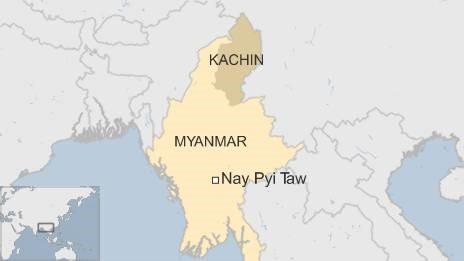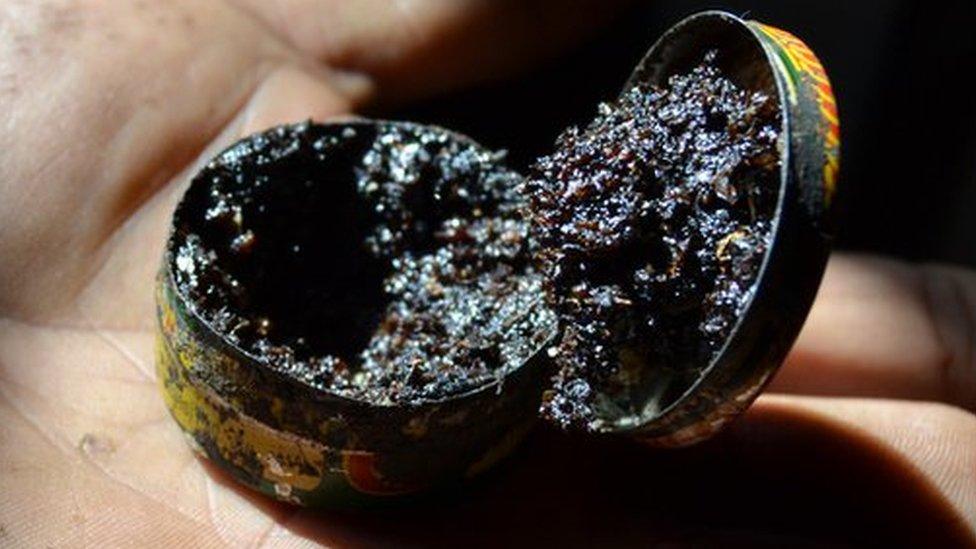Myanmar vigilante opium stand-off continues
- Published

Myanmar is the world's second largest producer of opium
A stand-off is continuing in Myanmar between police and Christian anti-drug vigilantes, who want to destroy poppy fields in the northern state of Kachin.
Police have stopped members of the Pat Jasan Christian group - some wearing military-style uniforms - outside the town of Waingmaw.
Farmers says they will fight back if the campaigners are let through.
Myanmar is Southeast Asia's top opium producer, external - and the world's second largest after Afghanistan.
"Local army and police told us that they are still blocking the way for security reasons," Hpala Lum Hkawng, a Pat Jasan member told French news agency AFP.
China's drug habit fuels return of the Golden Triangle
Opium has traditionally been used as a medicine to treat diarrhoea, dysentery and other ailments.
But over the last decade commercial poppy production has taken hold.
The United Nations Office on Drugs and Crime (UNODC) said in its Southeast Asia Opium Survey 2015 that opium poppy grown in Myanmar and Laos had been refined into about 73.1 tonnes to 82.3 tonnes of street-quality heroin.

"The region's demand for heroin remains at unacceptably high levels and transnational organised crime groups are making huge profits," it said.
Until the end of the 20th Century, Myanmar, which was part of the so-called "Golden Triangle" with neighbouring Laos and Thailand, was the largest supplier of opium. The region was then overtaken by Afghanistan.
Demand from China, but also Australia and Japan, is one factor behind the rise in production in the last decade.

Who are Pat Jasan?

Pat Jasan members on patrol in the capital of Kachin state
Pat Jasan formed two years ago by powerful Kachin Baptist Church
Boasts 100,000 anti-drugs activists, largely ethnic Kachin
Group says region blighted by drugs use
Carries out patrols apprehending offenders - reports of public floggings of drug dealers, who are taken to faith-based rehabilitation centres or the police
Full-scale village raids carried out by Pat Jasan involving several hundred people wearing camouflage jackets and brandishing batons - authorities want them to wear civilian clothes

Pat Jasan members and detainees share a meal together

Punishments include isolation - this man is restrained in his room after trying to escape

Myanmar launched a 15-year plan to eliminate opium poppy cultivation in 1999 - a deadline since extended to 2019.
In recent years, Myanmar's army has clashed with ethnic minority rebels in Shan and Kachin states where poppy production is widespread.
The army, rebels and militias have been accused of taking a poppy tax from farmers.

Photos of poppy clearing operations are on display at Pat Jasan headquarters in Myitkyina
- Published17 September 2015
